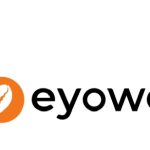Lagos state, Nigeria’s commercial hub, implemented e-hailing regulations in 2020, becoming the first state in the country to do so. However, recent discussions have revealed that these regulations may not adequately address the concerns of all stakeholders, particularly cab drivers.
Comrade Ayoade Ibrahim, founding Secretary-General of the Amalgamated Union of App-based Transporters of Nigeria (AUATON), confirmed the existence of these regulations. He noted that while he was involved in the initial process, the lack of a unified drivers’ union at the time resulted in missed opportunities for drivers. The regulations primarily benefited the state’s Internally Generated Revenue (IGR) without providing substantial advantages for drivers.
Stephen Iwindoye, spokesperson for AUATON’s Lagos chapter, acknowledged the existing regulations but emphasized that they fail to address critical issues faced by drivers. These include security concerns, algorithmic decision-making by app companies, arbitrary driver activation and deactivation, high commissions, low trip fares, and the misclassification of drivers as independent contractors rather than employees.
The 2020 regulations were introduced following clashes between e-hailing drivers and the Lagos State Ministry of Transportation. The document covered various aspects, including licensing of e-hailing companies, driver registration, vehicle standards, and driver qualifications. However, it lacked provisions for driver benefits and imposed certain burdens on them, such as the requirement for vehicles to be no older than three years and mandatory annual checkups at drivers’ expense.
Comrade Ayoade criticized the practicality of these regulations, particularly the new vehicle requirement, citing economic challenges, poor road conditions, low demand, and unfavorable pricing mechanisms imposed by app companies. He also pointed out the government’s inconsistent enforcement of regulations, which seems to prioritize revenue generation over driver welfare.
The state’s focus on accessing Uber’s database to charge Road Maintenance Fees further highlights this revenue-centric approach. Recent arrests of Uber and Indrive drivers for non-compliance with API regulations have been viewed as another example of the government prioritizing revenue over driver protection.
In light of these issues, stakeholders are calling for a comprehensive review of the 2020 e-hailing regulations to reflect current realities and benefit all parties involved. Key areas of focus for such a review include reducing the commission charged by cab-hailing companies, establishing an agreed-upon pricing mechanism, implementing provisions for drivers’ health insurance, and developing a comprehensive security mechanism.
The call for review underscores the need for regulations that balance the interests of the state, e-hailing companies, and drivers. As the e-hailing industry continues to evolve, regulatory frameworks must adapt to ensure fair treatment and sustainable operations for all stakeholders involved. This review process presents an opportunity to address the gaps in the current regulations and create a more equitable environment for Lagos’s e-hailing ecosystem.





